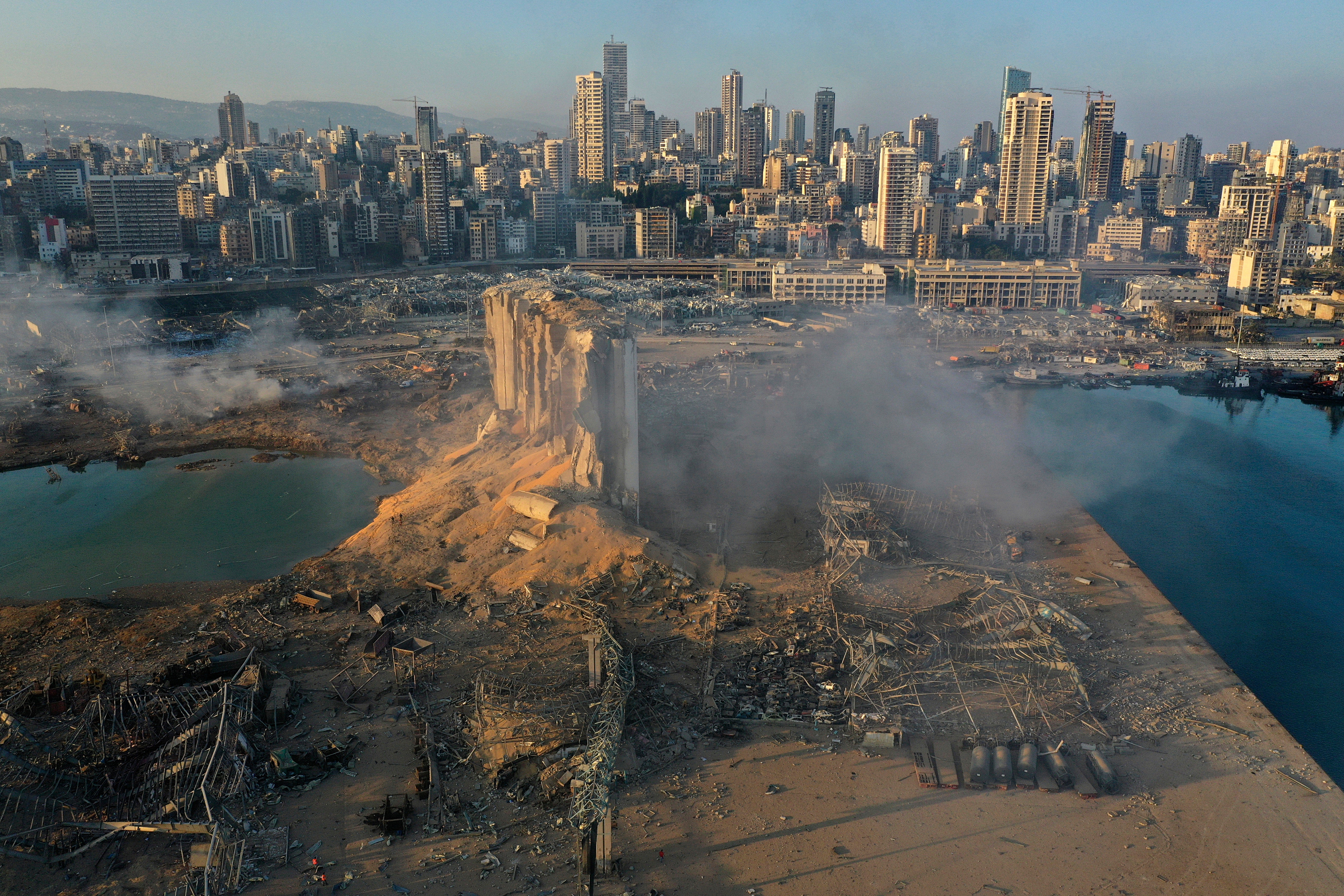Lebanese judge goes after top officials over port blast
The Lebanese judge leading the investigation into last year’s massive blast at Beirut’s port has announced he intends to pursue top politicians and former and current security officials in the case

Your support helps us to tell the story
From reproductive rights to climate change to Big Tech, The Independent is on the ground when the story is developing. Whether it's investigating the financials of Elon Musk's pro-Trump PAC or producing our latest documentary, 'The A Word', which shines a light on the American women fighting for reproductive rights, we know how important it is to parse out the facts from the messaging.
At such a critical moment in US history, we need reporters on the ground. Your donation allows us to keep sending journalists to speak to both sides of the story.
The Independent is trusted by Americans across the entire political spectrum. And unlike many other quality news outlets, we choose not to lock Americans out of our reporting and analysis with paywalls. We believe quality journalism should be available to everyone, paid for by those who can afford it.
Your support makes all the difference.The Lebanese judge leading the investigation into last year’s massive explosion at Beirut’s port announced Friday he intends to pursue senior politicians and former and current security chiefs in the case, and requested permission for their prosecution, state media reported.
Judge Tarek Bitar confirmed charges filed by his predecessor against outgoing Prime Minister Hassan Diab and summoned the premier for questioning, National News Agency reported. He did not set a date.
Bitar also asked the government and the interior ministry for permission to question two of Lebanon’s most prominent security chiefs — the head of General Security Directorate, Maj. Gen. Abbas Ibrahim, and the head of State Security, Maj. Gen. Tony Saliba.
Separately, he asked parliament to lift immunity for two legislators who were charged by his predecessor, and a former interior minister. Bitar also filed charges against former army commander Gen. Jean Kahwaji and former head of military intelligence Brig. Gen. Kameel Daher, as well as two other retired intelligence generals.
The move — two days before the 11-month anniversary of the blast — was a bold step by Bitar, whose predecessor was removed following legal challenges by two of the lawmakers he named in the case.
Nearly 3,000 tons of ammonium nitrate, a highly explosive material used in fertilizers that had been improperly stored in the port for years, exploded on Aug. 4, killing 211 people, injuring more than 6,000 and devastating nearby neighborhoods.
The blast was one of the largest non-nuclear explosions ever recorded and was the most destructive single incident in Lebanon.
“Judge Tarek Bitar has taken a very courageous decision,” wrote Lebanese lawyer and activist Nizar Saghieh on Twitter “He is opening again the battle of (lifting) immunities against influential people.”
It was not immediately clear if Diab would accept to be questioned by Bitar, after declining to be interrogated by the former prosecutor last December. NNA said Bitar made his decision after he had listened to witnesses.
He formally asked parliament to lift immunity of three lawmakers: former Finance Minster Ali Hassan Khalil, Minister of Public Works Ghazi Zeiter and former Interior Minister Nouhad Machnouk. He also asked the bar association for permission to question former Public Works Minister Youssef Fenianos.
NNA said they will be questioned over possible intentional crimes of killing and negligence. Families of the victims and survivors of the blast have accused the ruling political class of corruption and negligence that led to the explosion of ammonium nitrates,
Bitar was named to lead the investigation in February after his predecessor was removed following legal challenges by Khalil and Zeiter.
In mid-April, Bitar ordered the release of six people, including security officers, who had been detained for months. Among those released was an officer who had written a detailed warning to top officials prior to the explosion about the dangers of the material stored at the port.